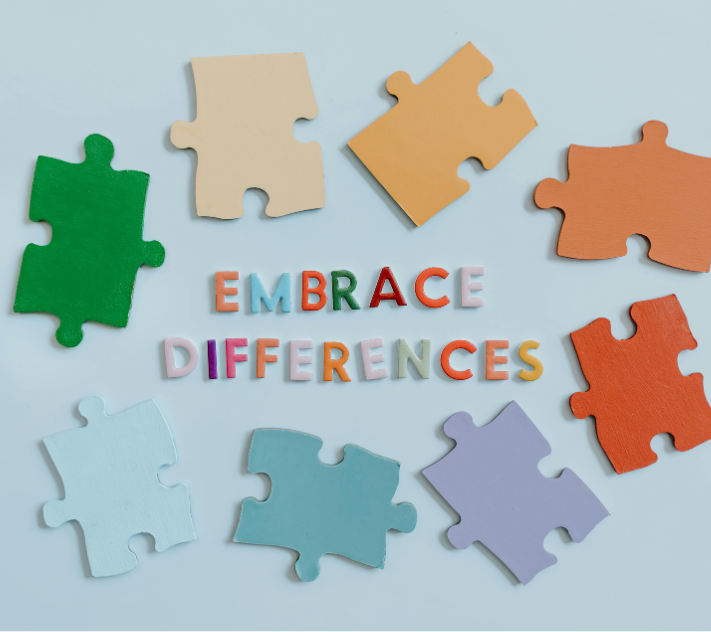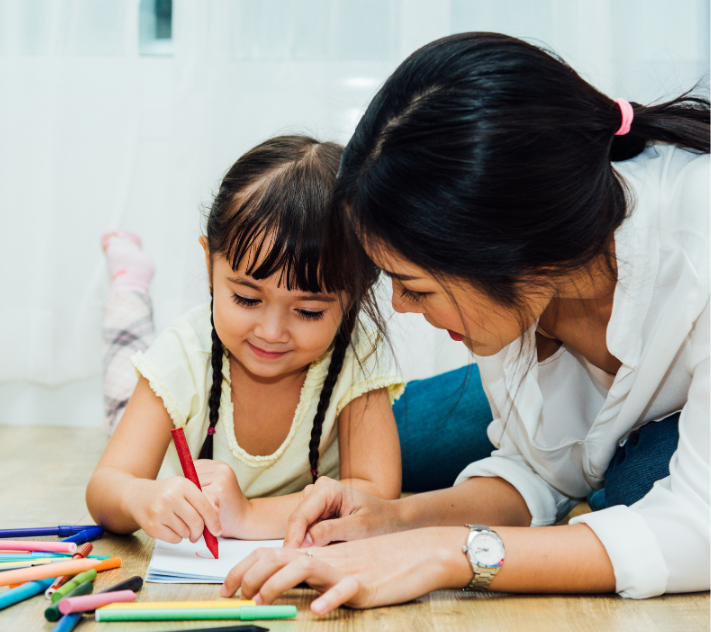What is Disability Pride Month and How to Foster Acceptance Among Preschoolers
July marks the start of Disability Pride Month, a time to recognize the unique achievements, experiences, and barriers…

July marks the start of Disability Pride Month, a time to recognize the unique achievements, experiences, and barriers people with disabilities face. It’s also a chance to celebrate and embrace everyone’s unique differences and view them as integral characteristics of who they are.
Disability Pride began as a day to commemorate the signing of the Americans with Disabilities Act (ADA) into law on July 26, 1990. The first official Disability Pride Month began in 2015 on the 25th anniversary of the monumental legislation.
Developing social-emotional learning and accepting people with different abilities is mainstream in preschool curriculum. However, there’s always room to help educate and empower preschool children to learn acceptance and kindness.
How Does the Americans with Disabilities Act (ADA) Affect Child Care Centers and Preschools?
Before diving into how to celebrate and honor Disability Pride Month, let’s look at the history of legislation that inspired the month-long observance. The Americans with Disabilities Act establishes legislation at the federal level that protects all people with disabilities from discrimination in the workplace and many areas of public life, like parking, access to child care and preschool, public transportation, and more.
Individuals with Disabilities Education Act (IDEA), established in 1975, ensures that all children ages 3-21 with disabilities receive free, appropriate public education that includes reasonable accommodations and special education services. The Colorado Department of Early Childhood, which oversees licensing for all child care and preschool providers in the state as well as Colorado Universal Preschool follows all federal and state laws to serve children with disabilities.
What Disabilities Affect Children in School?
For the 2022-2023 school year, approximately 13% of all children ages 3-21 enrolled in public schools received special education or related services under IDEA. A specific learning disability was the most common type of disability (meaning children who have “a disorder in one or more of the basic psychological processes involved in understanding or using spoken or written language that may manifest itself in an imperfect ability to listen, think, speak, read, write, spell, or do mathematical calculations”). A specific learning disability accounted for 32% of all children receiving services, with a speech or language impairment accounting for 19% of disabilities nationwide. Sensory processing disorders, autism, intellectual disabilities, other health impairments, and hearing limitations are other types of disabilities tracked by the National Center for Education Statistics, an independent arm of the U.S. Department of Education.
How to Encourage Acceptance Among Preschool Children
Encouraging your preschool child to accept people with disabilities starts with parents, caregivers, and educators. Here are a few tips to get started.
- Model the way: Children learn from the adults around them. The more you can be accepting, kind, and supportive of other children and adults with unique abilities, the more likely your child will follow your lead. For inspiration, check out this Sesame Workshop webinar on kindness or this episode of the Parenting Minutes podcast on encouraging kindness and confidence.
- Teach that differences make everyone unique: One in 4 adults in the US has a disability, and 1 in 5 children in the US have special health care needs. Chances are high that you–and your child–are personally impacted or know someone who is affected by a disability. Teaching your child that differences should be embraced, rather than looked at negatively, can promote acceptance and kindness. Sesame Street has a long history of helping children understand how to celebrate everyone’s uniqueness and find commonalities like having fun. Their family resources, including this one on autism, offer many tools to help children understand differences.
- Encourage curiosity and respect: While every family and person has unique preferences, in general, most people with disabilities would prefer you ask questions rather than assume, stare, or rush away from them. For preschoolers, they may have never encountered another child (or person) who is non-verbal, sensitive to sounds, or with a physical limitation. Educating your child and helping them ask kind questions (and correcting them if they are being rude), can go a long way in fostering acceptance. This Making Friends with Children of All Abilities Video is a great resource for families and children alike.
- Expose your children to opportunities to learn more: From books to events, ensuring your child has a robust experience with people of all abilities will help them develop empathy, acceptance, and connection. For Denver families, check out the Denver Disability Pride Celebration at the Clyfford Still Museum from 10:30 am-12:30 pm on July 27. These 25 Inspiring Books About Special Needs Chosen by Special Needs Moms are also great resources for children of all ages.
Sign Up For More Family-Friendly Tips and Resources for Preschool Families
Was this blog post helpful and interesting? If so, consider signing up for DPP’s Family Dispatch, our e-newsletter packed with the best preschool opportunities in Denver, expert tips on early childhood education, upcoming family-friendly events, and access to exclusive resources for your child’s growth and development. Sign up here today.



